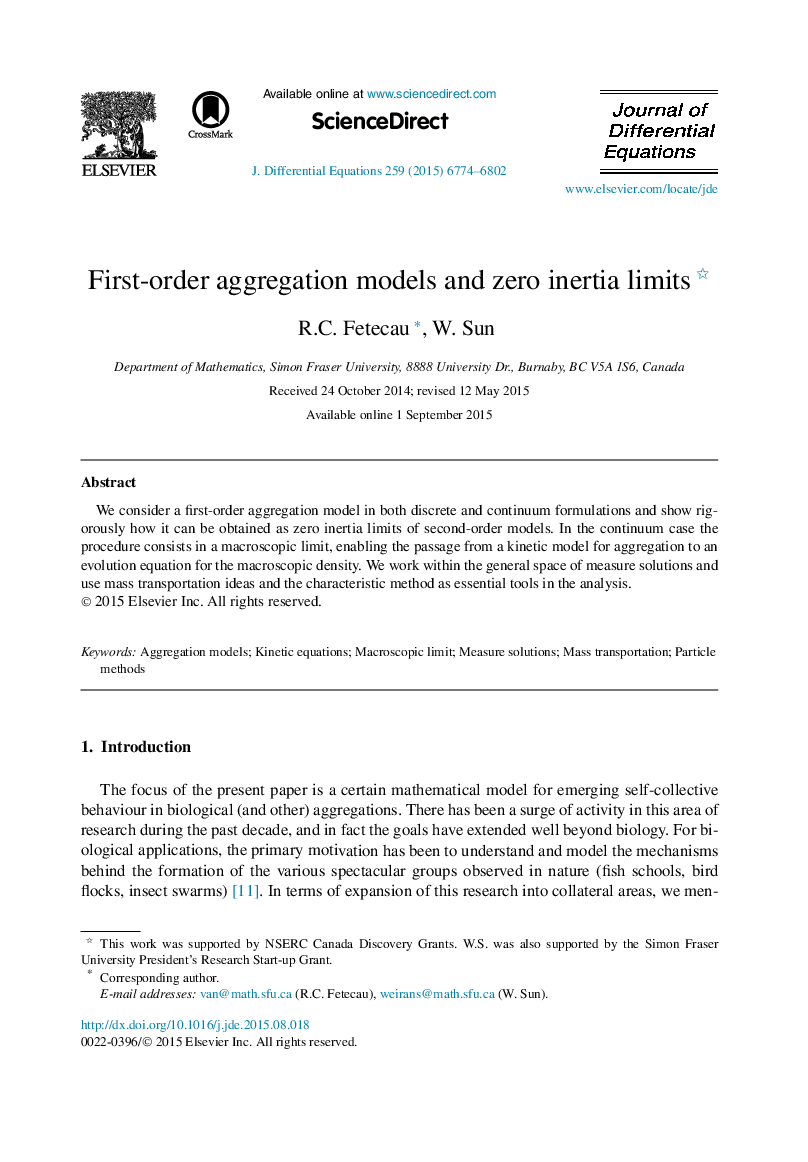| Article ID | Journal | Published Year | Pages | File Type |
|---|---|---|---|---|
| 6417149 | Journal of Differential Equations | 2015 | 29 Pages |
Abstract
We consider a first-order aggregation model in both discrete and continuum formulations and show rigorously how it can be obtained as zero inertia limits of second-order models. In the continuum case the procedure consists in a macroscopic limit, enabling the passage from a kinetic model for aggregation to an evolution equation for the macroscopic density. We work within the general space of measure solutions and use mass transportation ideas and the characteristic method as essential tools in the analysis.
Keywords
Related Topics
Physical Sciences and Engineering
Mathematics
Analysis
Authors
R.C. Fetecau, W. Sun,
